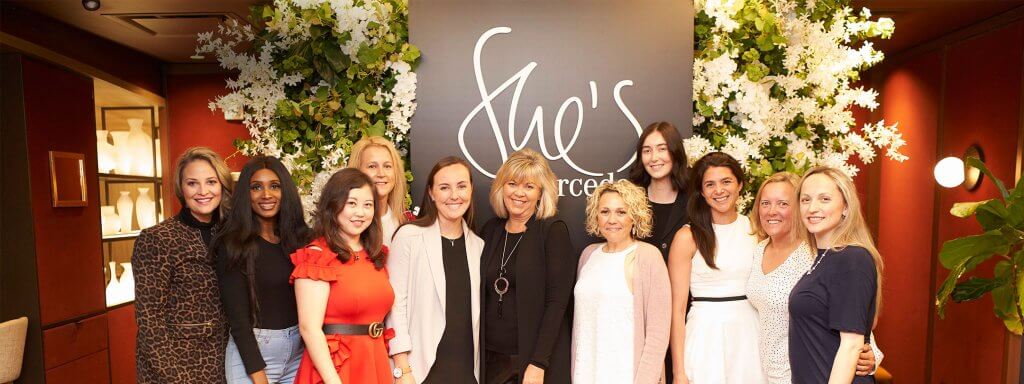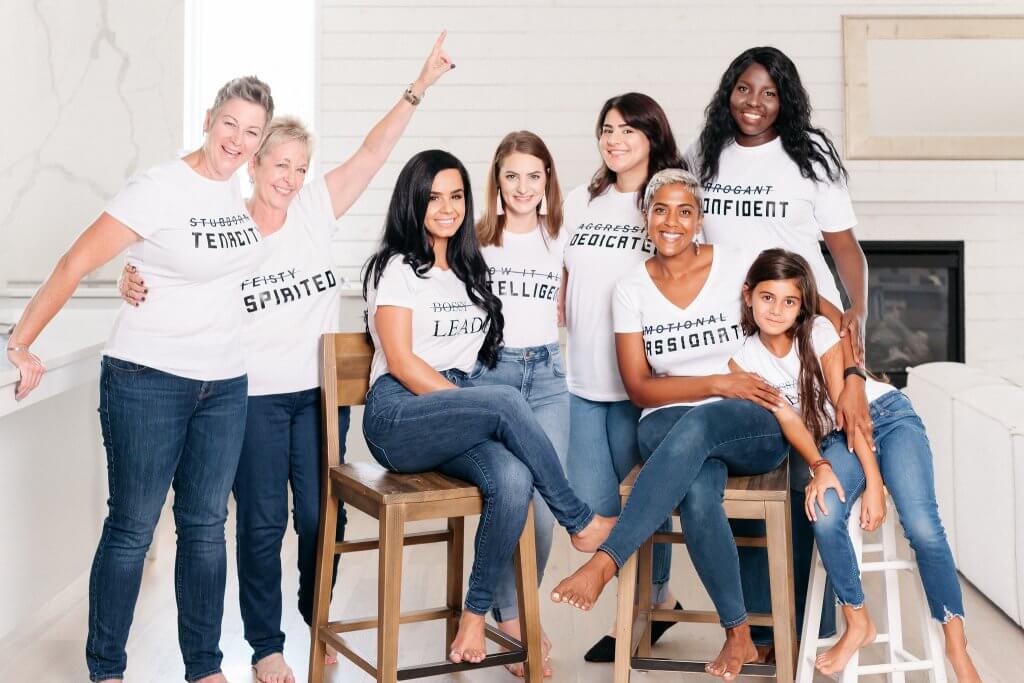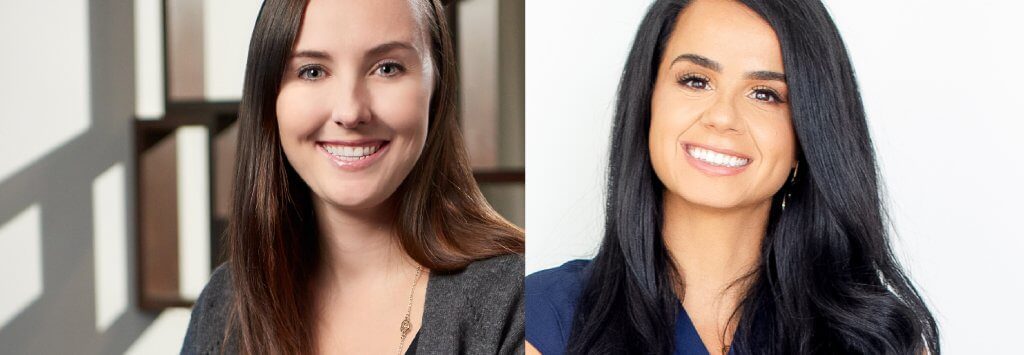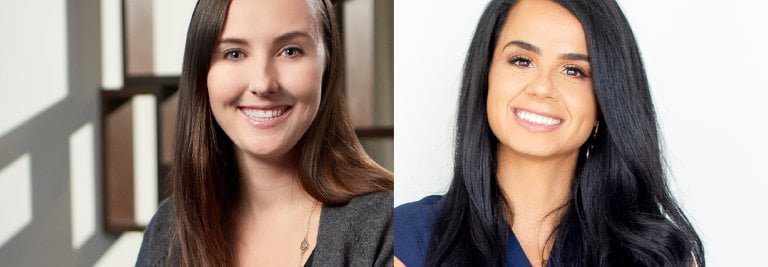They also have three—soon to be four—young children between them. The Drive touched base with both impressive young women to get their insights into raising children from the c-suite, and why there is no one-size-fits-all approach to modern motherhood.
“So, basically you’re giving up on your career then.”
Justine Janssen had just made a big decision. An influential executive in the global tech sector, Janssen, a Chatham native, had lived and worked in Dallas, New York City, San Francisco, and Toronto—all before her 30th birthday. With their first child on the way and a strong family network in place, Janssen and her husband Eric, from Amherstburg, had decided to return to Essex County. At the time, the Janssens were living in Toronto, where their respective companies were based, but were already travelling and telecommuting regularly.
Justine’s coworker saw this decision as the end of a professional journey and the beginning of a personal one, and she wasn’t afraid to say so. But was this really giving up?
“I can’t say that I was totally sure at that moment if I was or not,” Janssen now admits via Zoom video chat. “With how much we travel, we knew that we were going to need some more support, and our family is very important to us. Ultimately, for us, it ended up working phenomenally well.”
Today, Janssen (née Kilby) is mom to Jack (four) and Grace (two) with a third child on the way. She’s also a senior vice-president at Ceridian, a Canadian human capital management software company with global reach. Essentially, the enterprise helps companies of all sizes manage what it calls “the entire employee life cycle,” encompassing recruiting, onboarding, payment, and career development. In 2018, Janssen led Ceridian’s initial public offering—the largest ever in the Canadian technology sector—raising more than $800 million. Unprecedented territory for a “working mom.”

Janssen is the type of person who, while being incredibly kind and personable, can make you feel woefully under-accomplished. A founding partner and strategist at Move the Dial, a Toronto-based think tank dedicated to advancing the participation and leadership of women in tech around the globe, she also sits on the boards of directors for WEtech Alliance and Entegrus Powerlines Inc. and works with Build a Dream as a mentor and advisor. Since 2014, Janssen has chaired the board of directors for Ceridian Cares, her company’s community-focused charity. This academic year, she’s Entrepreneur in Residence at the Ivey Business School at Western University, where her husband teaches.
The Janssen family relocated up the 401 to London last year to accommodate Eric’s new lecturer position. Janssen can work ably from home, but she finds herself in Toronto at least once a week, and fitting in flights elsewhere regularly. There’s a lot to juggle.
Impressively, Janssen seems to apply the same level of thoughtful, performance-focused rigor to her home life as she does her work life. “My husband and I sit down monthly to talk about what’s working and what’s not working,” says Janssen, who also conducts quarterly reviews of her family and household operations. “We’re very intentional about how we’re using our time and energy because we don’t have a lot of it. All you can do is get really clear on what works for you and prioritize those things that give you energy and try to get rid of everything else.”
Sometimes, the couple’s choices have brushed up against received corporate wisdom. “The decision to not get a nanny is not a popular one in my sphere of work,” she notes.
Janssen’s division of domestic and professional labour began on a rather ad-hoc basic. Four months after Jack’s birth, Janssen was thrust back into the c-suite spotlight when her boss died unexpectedly. “The morning he passed away, our CEO called me and asked if I could help out,” she recalls. “I took Jack with me to Toronto. We just made it work and we didn’t look back.”
Janssen planned on a more “traditional” maternity leave the second time around, but she found it challenging. Spending a lonely LaSalle winter in relative solitude was a significant shock to her system, and Ceridian was in the process of going public. Within eight weeks of her daughter’s birth, she was going in to the office. “I’d been working there since we were a startup with two customers,” she notes. “You don’t get to IPO a multibillion-dollar company very often. Especially not in Canada. That was really intense, and really hard, but I got to accomplish something I had been working towards for more than a decade. I was very lucky to have the support around me to make that happen.”
At one point, Janssen recalls nursing her two-month-old daughter in a room with 14 men at a board table. It was IPO crunch time, the meeting had been moved at the last minute, and she didn’t have childcare right away. “One choice I made early on,” she recalls,” right or wrong, was that I took my kids with me a lot. I just didn’t ask, and nobody ever said anything. It became pretty empowering.”
With the business in a more stable place now, she’s considering taking a full year off this time.
Janssen admits she didn’t have access to very many female mentors as a new mother. “A lot of the women I work with are much older than me,” she says matter-of-factly. “I found myself in a unique situation being such a senior leader at a young age and having kids.”
Fortunately, she was able to establish a small network of supportive women outside the office. Around the time she returned to work after the birth of her second child, Janssen began working with Jen Oliver, an Essex County–based personal trainer, motivational speaker, and life coach at FitMama, a “mindset-based coaching movement” centred on body positivity. She also took inspiration from her friend Jodi Kovitz, a Toronto-based lawyer and the founder of Move the Dial.
Her advice, with the benefit of hindsight, is quite straightforward: “Find humans around you,” she counsels, “men or women, who have done what you want to do or believe you can do what you want to do, and grab on to those people. One thing that’s been really true in my life, although most of my mentors have been men, is that I’ve benefitted from people who’ve expected more of me than I did. Especially in southwestern Ontario, people tend to pull back or not think that really massive, game-changing things are possible.”
For Janssen, now on the other side of the mentor-mentee relationship, that work is often as much about self-care as it is about altruism. “When you prioritize things that you care about, they’re extremely energizing,” she stresses. “It’s really important to me that community—in terms of where you identify as belonging—is part of our family and individual lives. As a woman in tech, I want to support the paths of others, because it’s an area I know about, and I want to help others on their journeys.”
Her own career? It seems to be holding up just fine.

Windsor’s Nour Hachem-Fawaz and her husband, Moe, were in the process of selling their house, having just finished their first week of residency in the Odette School of Business’s MBA for Managers and Professionals program. She had filed the paperwork to register Build a Dream, her not-for-profit organization. By the weekend, things finally got interesting.
“I did four different pregnancy tests because I didn’t believe the first, second, or third one!” says Hachem-Fawaz, meeting at the Accelerator, Windsor’s shared-space startup ecosystem. “I was going to have a baby! But there was this rush of emotion: excitement mixed in with fear and doubt.”
Hachem-Fawaz found herself questioning the manageability of all the priorities she’d laid out in front of her. “I spent a lot of time in the early months of being pregnant, if I’m quite honest, worried about sharing the news,” she says, fresh from dropping off her now-22-month-old son, Adam, at daycare. “At that time, I hadn’t decided if I was going to give up on anything. I told myself that I really just wanted to do it all until I couldn’t, and then make the decision.”

She had been expecting this sort of counsel, but Hachem-Fawaz was still surprised how often her friends, family, and colleagues encouraged her to put other things on hold. “Interestingly enough,” she notes somewhat acerbically, “my husband and I were juggling work, school, and becoming parents together, and I saw firsthand that he didn’t get that same reaction.”
Hachem-Fawaz has worked for more than a decade as a workforce advisor, mentor, and influencer. Today, her growing not-for-profit organization, Build a Dream, aims to advance the position of women in society by encouraging girls and young women to consider career pathways in the skilled trades, as well as in science, technology, engineering, math, emergency response, and entrepreneurship. The organization brings together necessary stakeholders—parents, educators, professional mentors, and industry figures—to defeat gendered stereotypes and equip its audience with the tools, resources, and networks they need via “signature” career-discovery events and partnerships with postsecondary institutions and community organizations to facilitate hands-on experiential learning opportunities.
Moreover, the growing organization broadly aims to signal-boost stories of professional empowerment and amplify the reach of female mentors and role models. “I often say you can’t be what you can’t see,” says Hachem-Fawaz. “We talk a lot about getting women into leadership roles in areas in which they are significantly underrepresented. We do that not only by empowering young women, but also by encouraging companies and educators to change their approach and the lens through which they see workforce development, understanding that tapping into ‘the other 50 percent of the population’ is both an ethical and sound economic policy.”
A recent injection of federal government funding—a major milestone for the organization—promises to allow Build a Dream to expand nationally.
Shortly after Adam’s birth, Hachem-Fawaz reached out to Janssen for advice. “We sat for coffee, and I told her about the doubts I was having,” she recalls. “Is it bad that I really still want to pursue Build a Dream and see it go across the nation?”
The short answer: Not at all.
“I’ve surrounded myself with women in the industry whom I really admire, who are able to balance it,” says Hachem-Fawaz, who has become conscious of modelling behaviour for her young son. “They often empower me to say you have to be easier on yourself. You have to let certain things go, knowing that your child is watching their mom accomplish so much.”
Hachem-Fawaz immigrated to Canada with her family from their native Lebanon, when she was one year old; today, her understanding of motherhood is undeniably influenced by her cultural and class background.
“I grew up in a culture that continues to not support the commitments women make in a professional career while balancing motherhood,” she says. “I’ve talked about the cultural challenges my mom faced as she became a single mother when I was 17, the backlash and judgment, and the sacrifice she had to make.”
Hachem-Fawaz’s mother now leads a successful company of her own in the male-dominated automotive supply industry, but the family’s position was once much more precarious. “I watched my mom be a stay-at-home mom until she had no other choice but to go out into the workforce and raise four kids on her own,” she relates. “I truly believe that equipping women with tools, knowledge, and experience in the right career pathway can lead them to financial security and independence. My mom ingrained my values, morals, and work ethic by paving the way for me and my siblings.”
Fortunately, Hachem-Fawaz’s husband seems to represent a new, younger generation of comparatively equitable Middle Eastern–Canadian husbands. “Sharing this parenthood experience with my husband, I realize the important role spouses play,” she says. “I’m very fortunate that we were able to make this work together, that we’re able to progress in our careers and our professional development while really nurturing that family unit and wanting to be good parents.”
As a professional booster of careerist women, Hachem-Fawaz finds herself in an interesting position, post-motherhood. “I feel like a completely different person—for the better,” she shares. “It did completely change my perspective on womanhood—almost like I was seeing life through a different lens. All this is my livelihood: I’ve always been an advocate for seeing the barriers women face, but then I became a mom and realized there’s a whole different layer of judgment.”
Specifically, Hachem-Fawaz has found herself navigating what she calls “mom guilt,” a delicate emotional balancing act between the sensations of doing too much and not enough of one thing or another. She admits it’s a work-in-constant-progress.
“I know people mean very well when they say to me, It’s great to do all this, but remember: they grow up so fast, don’t miss these opportunities. I can read between the lines. In other words, they’re saying, You’re taking on too much and that’s a costing time you could spend with your child. I feel like I spend a lot of quality time with my child. As busy as I am, that’s something that’s non-negotiable. But it looks different for everybody. We need to empower families, and especially women, to do what they feel fits in their lifestyle, whatever that may be.
“I think one of the things we’ve learned is that balls are going to slip along the way,” she continues. “I’m really working towards being a little kinder to myself as I drop some balls, because it’s not easy juggling it all and doing it right.
“I often say you can have it all, but maybe not all at once. And that’s okay.”








